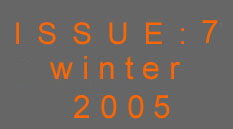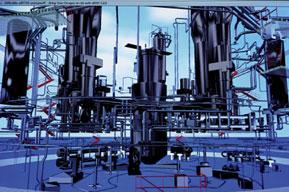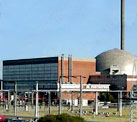 |
 |
Issue No.7 Winter
|
| ENS News |
| ENS Events |
| Member Societies & Corporate Members |
YGN Report |
| European Institutions |
November 2004
Energy Council |
| ENS World News |
ENS Members |
| Links to ENS Member
Societies Links to ENS Corporate Members Editorial staff ______________________ |
  |
| _____________________ |
|
|
|
|
Wolf-Dieter Krebs
|
The board of the German Nuclear Society KTG met in Berlin on October 19, 2004 to review trends in the German nuclear energy policy and to discuss further KTG actions.
|
In the German media and public at large there is an increasing awareness and debate on the future structure of the energy supply. The present red-green government still has no conclusive answer to the simple question – “What to phase-in when the phase-out of nuclear energy as pushed by the government really starts?”. The agreement between the German government and the electric utilities limits the lifetime of a German NPP to about 32 years (expressed in still to be generated kWh). Under that agreement the NPP in Stade (640 MWe net) terminated operation in November 2003 and the NPP in Obrigheim (340 MWe) will follow in about April 2005. But due to high capacity factors the 18 NPP operating in 2004 are expected to generate another record sum of electricity close to 170 TWh. Thus up to now the phase-out does not really hurt the utilities and their customers, since the first two NPP to go out of operation are small and less economic than the newer bigger ones. The effect on the CO2 balance is almost negligible since this is balanced by the other NPP. |
|
|
However the association of German power plant owners and operators (VGB) stresses that there is no way to replace the portion of electricity generated by nuclear power in Germany’s energy-mix that would also allow the country to reduce sufficiently its emission of greenhouse gases, like CO2. The ambitious CO2 targets under the Kyoto Protocol cannot be reached under the given conditions in general – despite the big efforts being made. Despite the increase in renewable energy, especially windpower, this non-baseload power source cannot replace nuclear power which generates more than 50% of baseload electricity in Germany. Replacing nuclear generation with coal- or gas-fired generation would produce significantly more CO2.
In order to promote the use of renewables the Renewable Energy Law (EEG) forces the utilities to buy wind, solar, biomass and small hydro generated electricity at much higher prices than market price. Legally this is not a subsidy since it is not paid by the state, but by the end-consumer. In 1998 this burden to all electricity consumers was 0.3 billion EUR, in 2001 it increased to 1.2 billion EUR and in 2004 the amount is expected to be 2.2 billion EUR. In the present rather bad economic and financial situation in Germany the Association of German Industry (BDI) calls for a real and fair competition in the energy market and a cutback of the distortion of competition by “political” burdens on energy prices. Energy intensive industries consider energy as a raw material and can only remain in Germany if they can rely on a long-term supply security with competitive prices; this is especially necessary in the electricity sector. The BDI demands that all technological options be kept open.

Various representatives of the opposition parties, the industry and the unions recently challenged the isolationist German phase-out of nuclear energy and demanded a lifetime extension of the operating plants. Polls in recent years also show that public opinion about the phase out of nuclear energy is slowly but steadily changing. Asked which electricity generation mode they prefer or like most, the overwhelming majority answers “renewables”. Asked whether they consider the nuclear phase-out as realistic, half of the people say this will not be implemented.
In German newspapers and on TV increasingly positive reports on the future role of nuclear energy can be found. The triggers or catalysts are probably, the decision to build an EPR, as well in Finland, as in France, the constantly high oil prices and last but not least a new generation of journalists who reconsider the issues free of ideology. The green party and other anti-nukes are alarmed and react with articles on the limited availability of uranium for just a few more decades besides other well known arguments. The German section of IPPNW for example promotes besides other things, not to invest into new NPP which will run out of fuel before the end of their lifetime, but rather go for 100% energy from solar, wind, hydro and biomass. The board of KTG decided to prepare a position paper on those issues for publication on the KTG website (www.ktg.org).

EPR - European Pressurized-water Reactor system
During a dinner after the KTG board meeting the
president of KTG Dr. Ralf Güldner awarded the honorary membership
of the German Nuclear Society in the year 2004 to Dr.
Rolf Linkohr and Dr. Peter M. Mombaur.
Both are long serving German members of the European Parliament
who retired from the EP in 2004. They were honoured for their
commitment to, and promotion of, a balanced and pragmatic energy
policy. Rolf Linkohr presented a very interesting after dinner
speech “How compatible are national and European energy
policies?”. In his opinion the EU Member States still have
a long way to go to really reach a harmonised European energy
policy. All energy options including nuclear and renewables are
necessary if the European Union wants to come even close to its
Kyoto commitments. Anticipated post-Kyoto further CO2 reductions
will have no chance without a significant nuclear contribution
to the electricity generation mix.
| |





